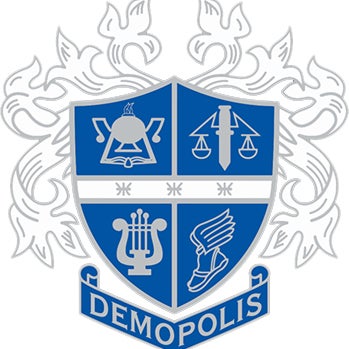4-H grant to benefit military kids
Published 11:02 pm Tuesday, January 6, 2009
Usually, when you think about “military kids,” you think of the children of soldiers who move from base to base, but since the conflict in Iraq began in 2003, there has been a new level of military kids.
Those are the children of people who served with the National Guard or in the reserves who had regular civilian jobs most of the time and served a weekend in the summer. As more and more Guard members and reservists were called into the conflict, more and more children became military children.
4-H is reaching out not only to these new military kids, but to all military kids through a grant that will allow those kids a chance to have fun with kids their own age.
Called “Operation: Military Kids,” the grant would help fund opportunities for these children like summer camps, day camps, trips and other activities.
“The idea started in Ohio,” said Charlene Hines, the military liaison for Alabama who also works with the 4-H and youth development at Auburn University. “The pilot program began in 2004 in five states: Alabama, Iowa, Washington, Idaho and Arkansas. In 2005, 15 more states submitted applications for the grant, and that launched the national program.”
Hines said the grant came through land-grant universities such as Auburn or Alabama A&M. Auburn works closely with extension offices and 4-H Clubs, so she has been working closely with the grant and its beneficiaries.
“It was part of a response to the global war on terrorism,” she said. “You’ve got National Guard and reserve troops, folks whose mom or dad are dentists or mechanics, working one weekend a summer and going to drill, and those people are now serving overseas. Suddenly, you’ve got military kids who never thought of themselves as military kids.”
Hines said there are 102 military kids in Marengo County and 81 in Choctaw County.
“Most of those are Army or National Guard kids,” she said. “If they are a single-parent home, then it is even harder, since the kids have to move from place to place to live with another relative, and their whole world is turned upside-down.”
The grant offers support for those children suddenly living as military children, and 4-H is one of the biggest partners in the grant. Other partners include the American Legion, Children’s Hospital, the University of Alabama School of Nursing, the Navy ROTC at Auburn University and the state board of education.
“Speaker’s bureaus invite military youth and encourage them to write articles for newspapers and make presentations at local civic groups,” she said, “to let people know what it’s like.”
The summer camp for military youth will be held June 22-26 at the 4-H Center in Columbiana, and there is no cost for military youth to attend.
“It’s a week for them to have fun,” Hines said. “Just to be kids. There’s archery and canoeing — all the things you do at a summer camp. Plus, it gives the parent or guardian a week of respite.”
Hines said that 4-H had applied for an additional grant to help fund another 14 camps statewide, including one- and two-day camps.
For more information about the grant, visit the Web site www.operationmilitarykids.org or contact 4-H regional Extension agent Susan Thompson at (334) 790-3870 or (205) 459-2133. In Marengo County, information can be obtained from Extension agent Kathryn Friday at (334) 295-5959.
Being a military kid is tough, whether it is something they have grown into or been pushed into. Through this grant obtained through 4-H, military kids don’t have to feel different because their parents are serving overseas. They can feel like a kid.





